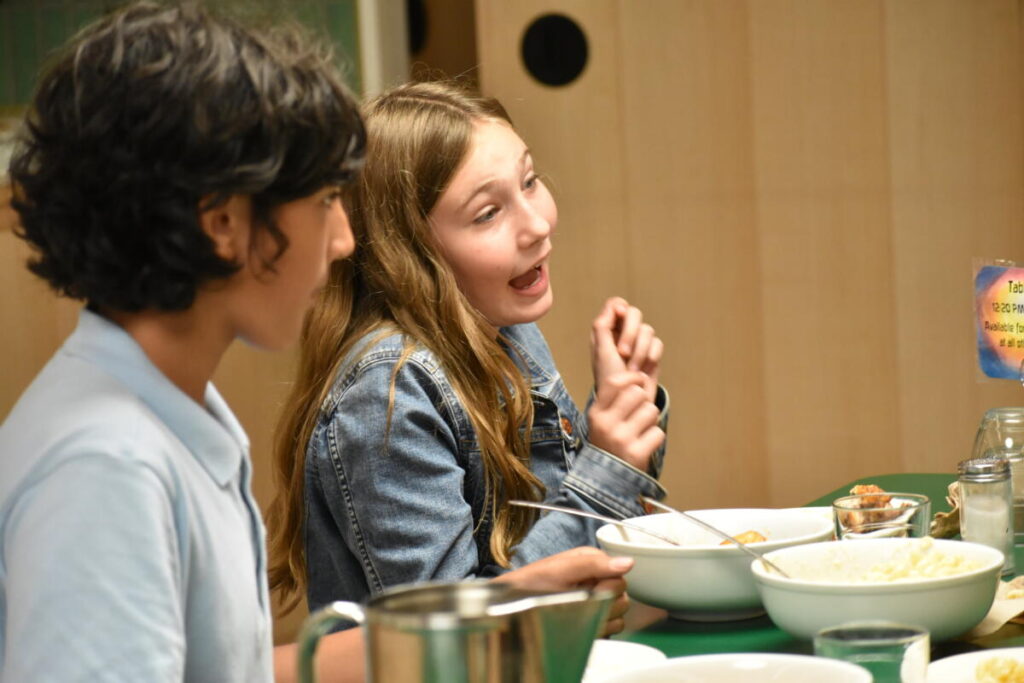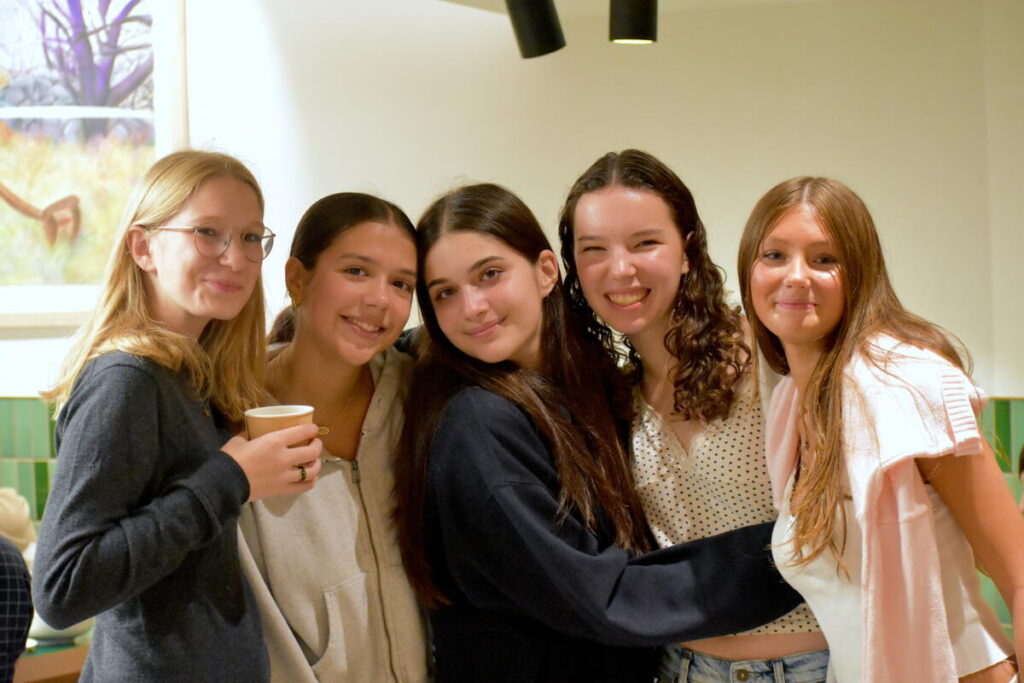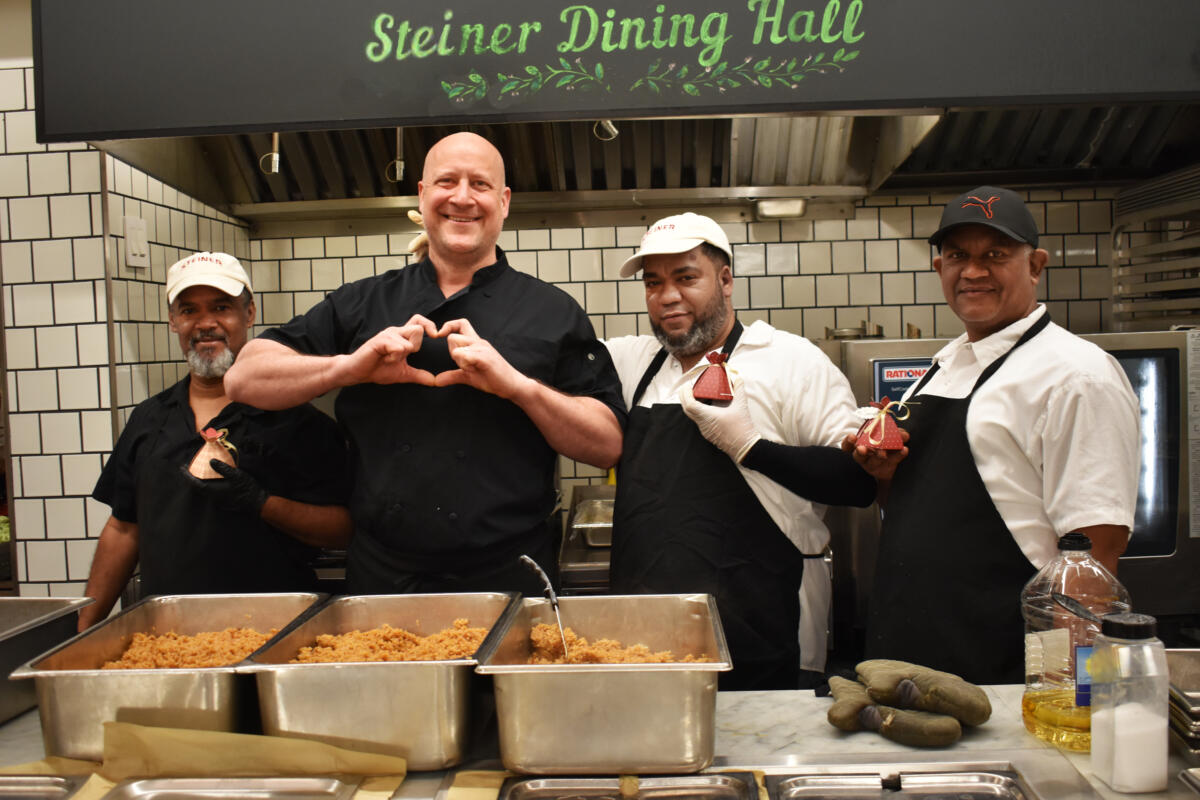SLOW FOOD IN A FAST CITY
by Astrea Ravenstar
Steiner Lower School Chair
” The importance of engaging students In a family-style meal experience can set habits that will stay with them for life.”
The 2024 Fall issue of AWSNA’s School Renewal magazine, included an article about our food and lunch program, written by our Lower School Chair, Astrea Ravenstar. The article brings insights about what we serve in our Dining Hall, our practices and sourcing, and how our farm program has these elements imbued into the curriculum. The magazine’s special edition focuses on schools that offer high quality lunch programs, school cooking programs, farm to table, garden to table, farm stands, and other related subjects.

Cultivating relationships through the human being’s innate capacities for reverence, love, and understanding is a cornerstone of Waldorf Education. Those relationships extend to the human beings we encounter daily, with the subject matter learned in the classroom and in the world, with our home the Earth, and with the food we eat. Honoring the slow food movement allows the students at Rudolf Steiner School New York City (Steiner) to develop a healthy relationship with the land, with one another, and to develop agency over their own well-being.
We hear the term farm-to-table used in many restaurants these days, and it is important to see locally sourced foods making a comeback in the modern American diet. Likewise, the increasingly popular Slow Food movement is its own Organization attempting to “defend biological and cultural diversity: educate, inspire, and mobilize the world around us; (and) influence the public and the private sector.” from their website slowfood.com
To bring the concept into broader and more genetar terms, Slow Living LDN states in its article “Slow Food, Movement History, Principles and Reasons to Embrace it” (which I highly recommend reading!) that slow food can be a useful word to describe a way of eating and type of conscious consumerism that encourages respecting seasonality, reducing environmental impact within food production, encouraging better education around the food system, and supporting local producers and their heritage.

“One of the main components of the Dining Hall renovation was to open up the cooking space so the students could see the team and have a relationship with the people making the food for them every day.”
-Gabriela Cordo | Steiner Executive Director
With a Slow Food Program at Steiner, we are taking a step beyond locally sourced foods to highlight the quality of the farming methods which include soil health, biodynamic, organic or natural growing methods, as well as the farming and fishing techniques that promotes quality of life and sustainability practices. These practices form a foundation for community values and conscious consumerism. Vegetarian and vegan options are available every day, while meats are sourced from farms that use grass-fed, free-range, or organic diets for the animals that live under the sun and in the field. There are no highly processed carbs, no refined sugar, no hydrogenated oils, and no empty calories. In a recent conversation with a colleague about our school lunches, she said “How could I not be happy?” I eat flowers every single day, referencing the daily salad bar that abounds with edible flowers!
“What I feed somebody becomes them, especially in the case of developing bodies.” says Chef Alexander Oefeli. Chef Alex joined Steiner in 2022 with over 30 years of experience in the restaurant catering, and food industries.
In doing so, he became part of a community enthusiastic about a healthy and slow food program that aligned with his own Swiss background and cooking for his family.



